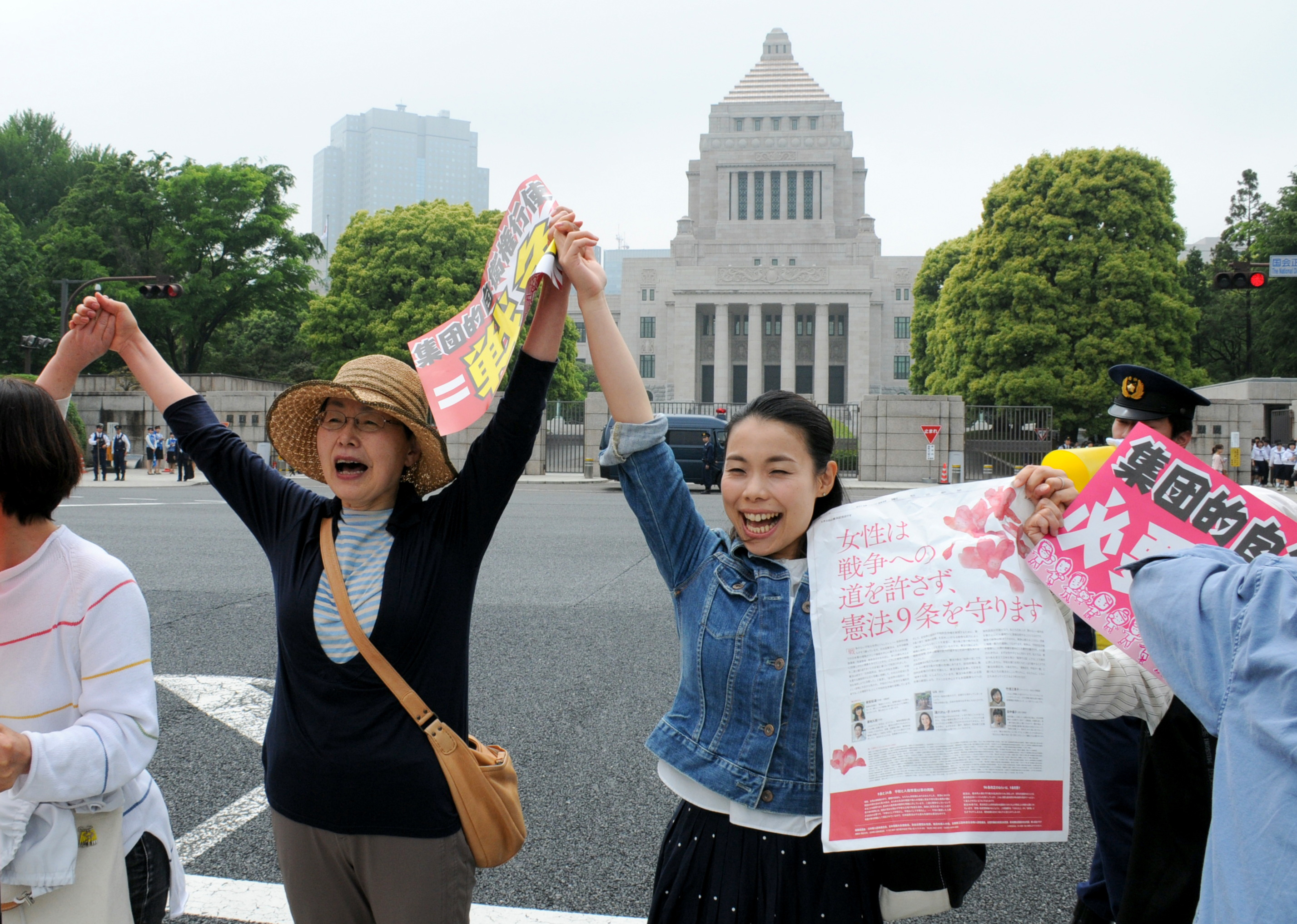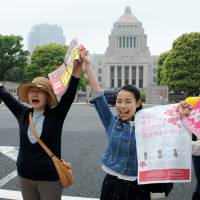Combating what they call an effort to turn Japan into "a pro-war country," 2,500 people formed a human chain around the Diet building at noon Tuesday to protest the Prime Minister Shinzo Abe's drive to reinterpret the pacifist Constitution.
A private panel of security experts hand-picked by Abe appears poised to submit a proposal Thursday to lift Japan's long-held ban on using collective self-defense.
Joined by citizens groups and labor unions, protesters chanted slogans calling for the preservation of war-renouncing Article 9 of the nation's charter and denouncing the use of its armed forces overseas.
One participant, 50-year-old writer Yoshihiro Abe, criticized the panel as a rubber stamp for the prime minister. These "like-minded friends," he said, are determined to make Japan a stronger ally of a "warmongering military power" like the United States. Fighting side by side with the U.S., he said, even risks "making Japan a target of terrorists," who might attack the vulnerable nuclear plants here.
Addressing the crowd, Chiba University professor Yoshiko Kimura challenged the prime minister's claim that being able to exercise the right to collective self-defense will protect the nation from foreign attacks, which Japan of course is fully entitled to respond to.
"Wielding the right has nothing to do with Japan's self-defense," she said.
Noting the U.S. used the right to draw its allies into the Vietnam War in the 1960s, Kimura said it would only bring Japan a step closer to similar conflicts.
The protest also drew the support of politicians and other prominent figures, including Japanese Communist Party President Kazuo Shii, Social Democratic Party leader Mizuho Fukushima and former Japan Federation of Bar Associations President Kenji Utsunomiya.



















With your current subscription plan you can comment on stories. However, before writing your first comment, please create a display name in the Profile section of your subscriber account page.